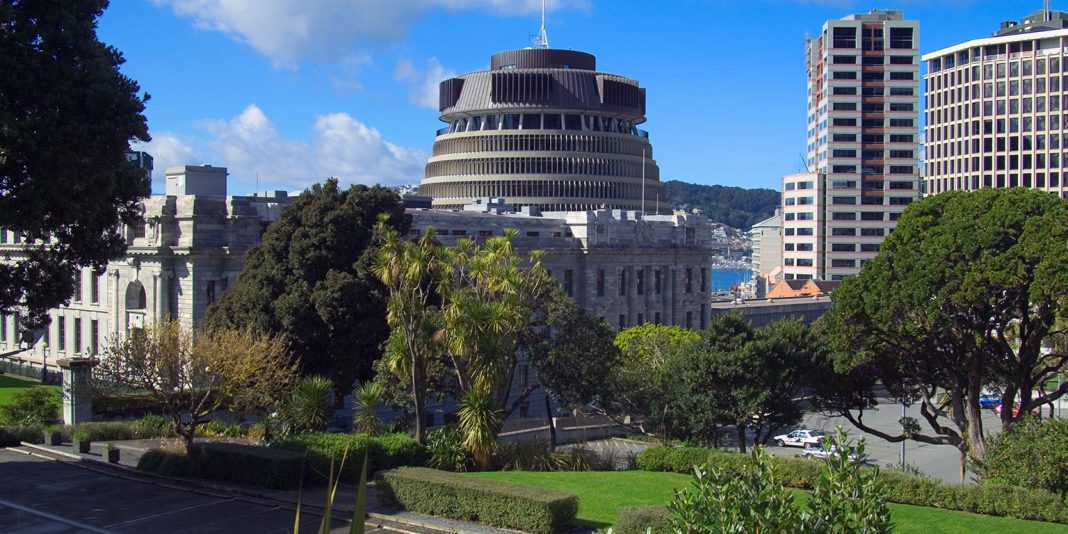A mental health inquiry and healthy homes are likely to be some of the first health items on the new government’s policy agenda.
With the speculation now over, the country waits for the announcement of the new cabinet, including the new health minister and their associates, and what policies have been agreed to or compromised on during the coalition talks.
What is known is that Labour, New Zealand First and the Greens all committed prior to the election to a mental health inquiry, with Labour stating that initiating a review of mental health and addictions services to identify gaps in service was one of its priorities for its first 100 days in office.
Also on Labour’s “100-day” priorities was passing the Healthy Homes Guarantee Bill to ensure rental properties are warm and dry. Paid parental leave is also likely to be extended, with both Labour and New Zealand First policies including increasing paid parental leave to 26 weeks.
On the nursing front, both Labour and the Greens had policies to increase nurse-led school-based health services. Labour also had on its policy books to fund and additional 100 Plunket and Tamariki Ora nurses.
On the funding front Labour’s fiscal policy included an extra $21 million for health to “pay back National’s underfunding” in the 2017-18 year and $293 million for the following four financial years.
Labour also committed to increasing health funding generally starting with an extra $554 million in 2018-19 and increasing progressively to an extra $2.8 billion in 2021-22 to make an overall $8 billion extra committed to health over four years.
The Greens wanted health funding to match increased needs and New Zealand First’s policy called for a “public health compact stipulating guaranteed minimum services”. New Zealand First also wants to review the number of district health boards.
In the palliative care area, the Greens had policies to improve palliative care training for medical, nursing and allied health, and New Zealand First wanted palliative care services fully funded.
Green Party Leader James Shaw has also said that a public referendum on legalising cannabis for personal use would be held by the 2020 election as part of the agreement between the Green and Labour parties.
Pay equity is likely to be under scrutiny under the new government with Labour pledging to scrap the Pay Equity legislation currently before parliament and to make mental health workers a priority in pay equity negotiations. The Labour and Greens inquiry into Aged Care noted that the pay equity settlement had created funding concerns for the sector, including the loss of pay relativity for registered nurses.
In the area of aged care, New Zealand First policy called for a review of aged care sector funding, particularly rest home funding after pay equity. Migration policies may also have impacts on the aged care sector.
The New Zealand Herald reported last night on what is known to date about the new government’s likely policy line following the New Zealand First announcement.
While the three leaders said they couldn’t go into detail about policy agreements until these were signed off and released early last week, some details were confirmed in media conferences.
These are:
• Immigration: Ardern said she will stick with Labour’s policy, which the party estimates will reduce net immigration by 20,000 to 30,000 a year.
• Housing: Ardern committed to implement Labour’s KiwiBuild policy, which would build 100,000 affordable homes over 10 years, with half in Auckland.
• Foreign ownership: Labour and New Zealand First have agreed to restrict sales of residential land and farmland to New Zealand citizens, permanent residents who live in New Zealand, and companies that are majority New Zealand-owned. A register of foreign ownership of land will be set up.
• Water tax: Indications are Labour’s proposed water royalty on agriculture won’t be introduced. While Ardern and Peters wouldn’t give a direct answer, Peters said farmers and people in the rural sector “should be happy”.
• Pike River: Peters said his commitment to clear the way for a re-entry of the mine will be kept.
• The Trans-Pacific Partnership: Parties agree to push to renegotiate so the trade deal allows for the Government to ban foreigners from buying New Zealand land.
• Māori seats: Will remain, despite New Zealand First’s policy to hold a binding referendum on whether to abolish them. Peters said his party had not been delivered enough support to demand such a measure.
• Reserve Bank: Peters indicated he didn’t get his wish to implement a drastically different model based on the Singaporean model, but there will likely be changes to the Reserve Bank Act to add greater weight to full employment when it sets interest rates.
• Moving the Ports of Auckland: Ardern indicated Labour is open to the New Zealand First policy of moving container operations to Northport, near Whāngārei.
• Education: Was not raised in press conferences, but major changes are very likely. All three parties want charter or partnership schools abolished, and National Standards scrapped.
• Kermadec sanctuary: Progress on the stalled 620,000-square-kilometre ocean sanctuary around the Kermadec Islands has been considered as part of the Greens’ deal with Labour. Greens leader James Shaw would not comment on the detail.
100 days: Labour’s campaign priorities
This is what the Government intends to do:
• Make the first year of tertiary education or training fees free from January 1, 2018
• Increase student allowances and living cost loans by $50 a week from January 1, 2018
• Pass the Healthy Homes Guarantee Bill, requiring all rentals to be warm and dry
• Ban overseas speculators from buying existing houses
• Issue an instruction to Housing New Zealand to stop the state housing sell-off
• Begin work to establish the Affordable Housing Authority and begin the KiwiBuild programme
• Legislate to pass the Families Package, including the Winter Fuel Payment, to take effect from July 1, 2018
• Set up a ministerial inquiry into mental health services
• Introduce legislation to make medicinal cannabis available for people with terminal illnesses or in chronic pain
• Resume contributions to the New Zealand Superannuation Fund
• Introduce legislation to set a child poverty reduction target
• Increase the minimum wage to $16.50 an hour, to take effect from 1 April 2018
• Establish the Tax Working Group
• Establish the Pike River Recovery Agency and assign a responsible minister
• Set up an inquiry into the abuse of children in state care
• Hold a Clean Waters Summit on cleaning up our rivers and lakes
• Set the zero carbon emissions goal and begin setting up the independent Climate Commission.



















